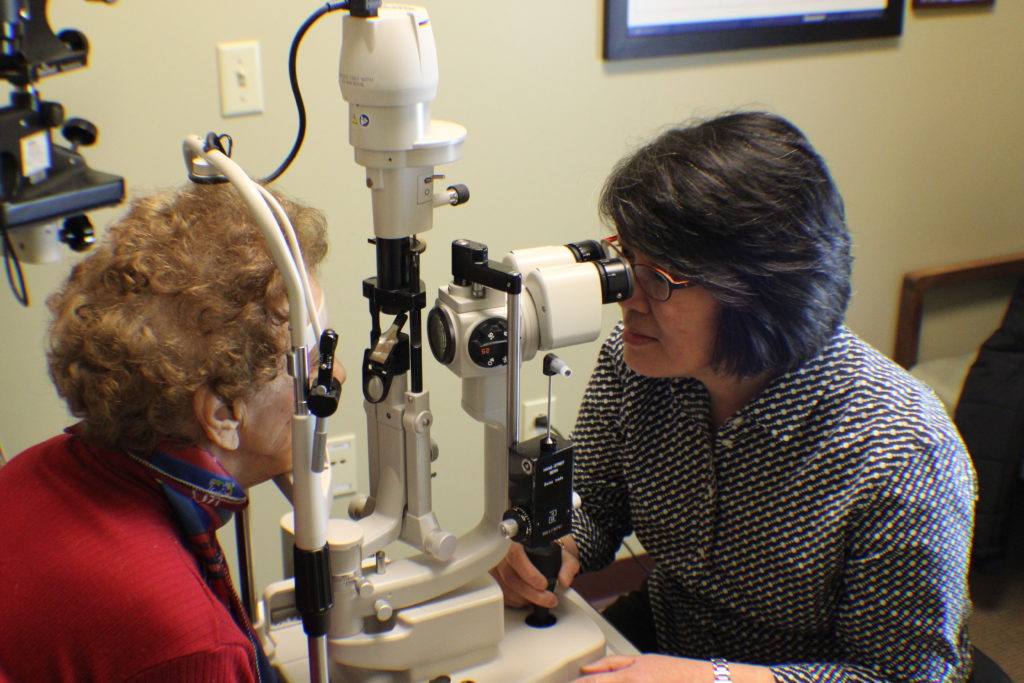Macular degeneration is a common eye disease that causes deterioration of the macula, the central area of the retina. This paper-thin tissue at the back of the eye is where light-sensitive cells send visual signals/images to the brain.
 The macula provides the sharp, central vision needed for reading, driving and seeing fine detail. Macular Degeneration affects this vital part of the eye. Damage to the macula results in the development of blind spots and blurred or distorted vision.
The macula provides the sharp, central vision needed for reading, driving and seeing fine detail. Macular Degeneration affects this vital part of the eye. Damage to the macula results in the development of blind spots and blurred or distorted vision.
Macular degeneration, or age-related macular degeneration (AMD), is a leading cause of vision loss in Americans 60 and older. It is a disease that destroys the sharp, central vision needed for reading and driving. Macula Degeneration does not hurt, but it slowly destroys the cells in the macula.
There are two types: wet and dry. Wet AMD happens when abnormal blood vessels grow under the macula. These new blood vessels often leak blood and fluid. Wet AMD damages the macula quickly. Blurred vision is a common early symptom. Dry AMD happens when the light-sensitive cells in the macula slowly break down. You gradually lose your central vision. A common early symptom is that straight lines appear crooked.
In their early stages, symptoms may be so mild that a patient may not even notice them. Regular comprehensive eye exams can detect macular degeneration before the disease causes vision loss. This is particularly important if there is a family history of age-related macular degeneration. Treatment can slow vision loss, but it does not restore vision. We recommend being screened for age-related macular degeneration annually every year after the age of 50.
If you currently have concerns, or have any questions concerning this serious eye condition, contact us today to schedule a thorough examination or consultation.